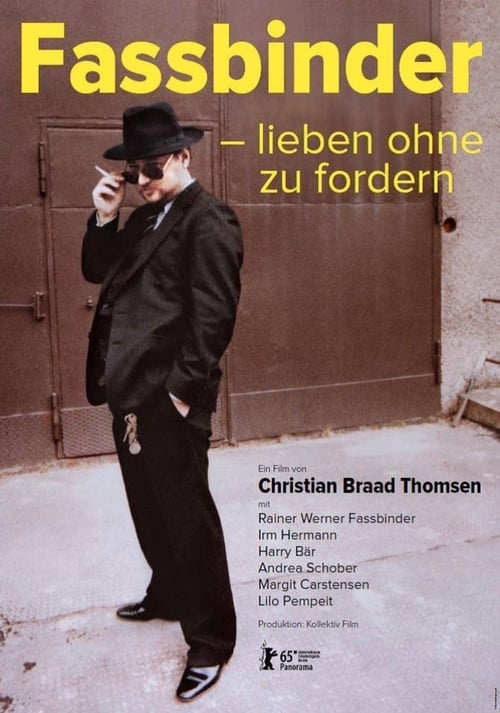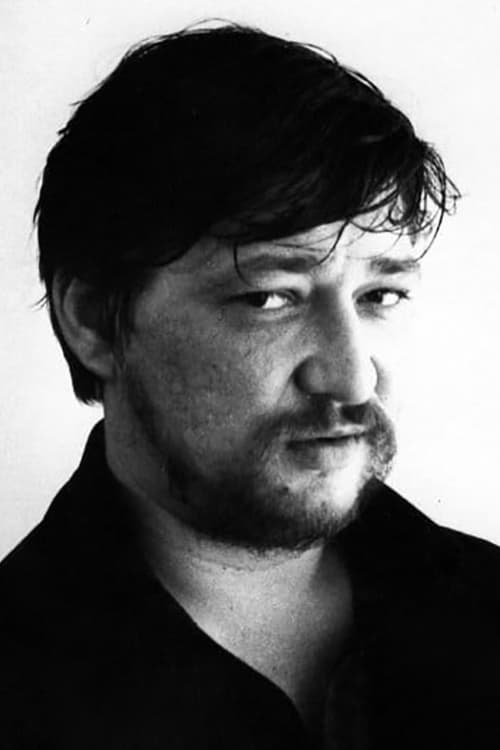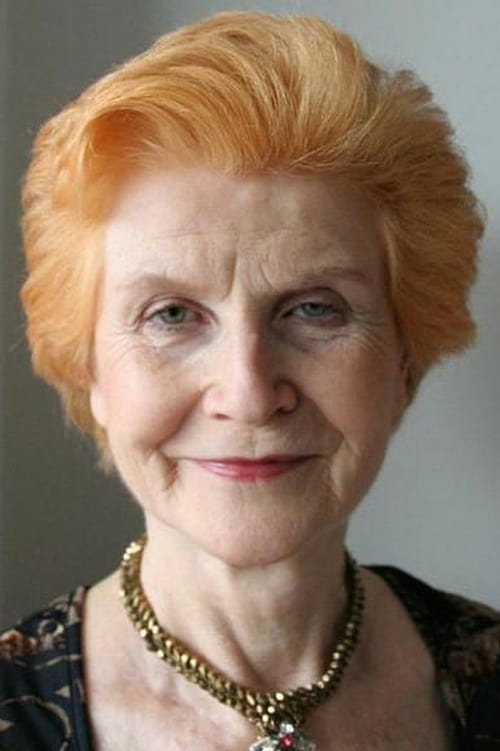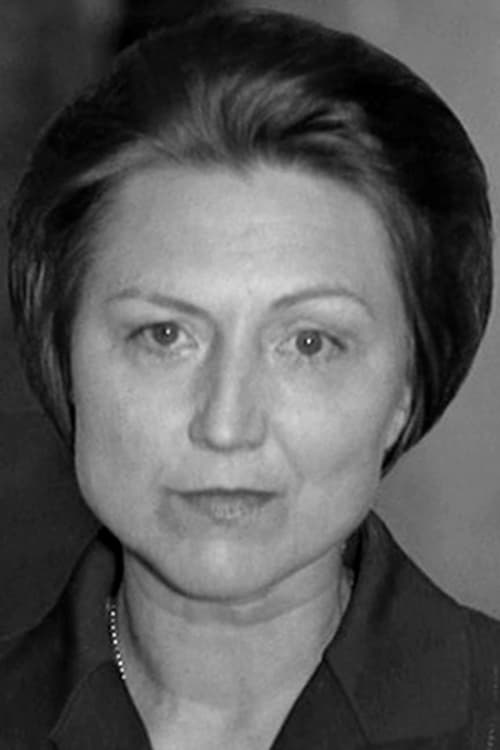Fassbinder: Love Without Demands (2015)
Жанр : документальный
Время выполнения : 1Ч 49М
Директор : Christian Braad Thomsen
Краткое содержание
Rainer Werner Fassbinder was probably Germany’s most significant post-war director. His swift and dramatic demise at the early age of 37 in 1982 left behind a vacuum in European filmmaking that has yet to be filled, as well as a body of unique, multi-layered and multifarious work of astonishing consistency and rigour. From 1969 onwards, Danish director and film historian Christian Braad Thomsen maintained a close yet respectfully distanced friendship with Fassbinder. Fassbinder – Lieben ohne zu fordern is based on his personal memories as well as a series of conversations and interviews he held with Fassbinder and his mother Lilo in the 1970s.

Саша был смыслом ее жизни. Теперь, когда сын подрос, у нее появилось больше свободного времени и она позволила чуткому Николаю Сергеевичу ухаживать за собой. После летней поездки сына к отцу она стала замечать в Саше перемены. Тайком прочитав письмо его отца, она узнала, что сын хочет уехать.
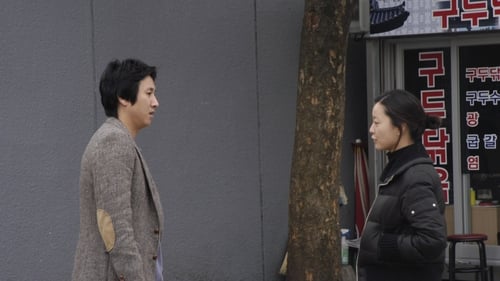
Hong Sang-Soo’s Lost in the Mountains (South Korea, 32min) the visitor is the supremely self-centred Mi-Sook, who drives to Jeonju on impulse to see her classmate Jin-Young – only to discover that her friend is having an affair with their married professor, who Mi-Sook once dated herself. The level of social embarrassment goes off the scale. In Naomi Kawase’s Koma (Japan, 34min), Kang Jun-Il travels to a village in rural Japan to honour his grandfather’s dying wish by returning a Buddhist scroll to its ancestral home. Amid ancient superstitions, a new relationship forms. And in Lav Diaz’ Butterflies Have No Memories (Philippines, 42min) ‘homecoming queen’ Carol returns to the economically depressed former mining town she came from – and becomes the target of an absurd kidnapping plot hatched by resentful locals. Serving as his own writer, cameraman and editor, Diaz casts the film entirely from members of his crew and delivers a well-seasoned mix of social realism and fantasy. —bfi

Algerian filmmaker Tariq Teguia wrote and directed this impressionistic look at a man whose life takes an unexpected turn far away from home. Malek (Abdelkader Affak) is a surveyor from Algeria who is semi-retired, but at the urging of a friend he takes an assignment in Oran. The region in question was the site of frequent battles during Oran's civil war, and an earlier survey that would make it possible to bring electrical utilities to the area was cut short by the fighting. While the zone is still unstable, Malek sets out to complete charting the area, and finds the locals regard him with suspicion and hostility. However, not everyone is disrespectful, and he discovers a young woman (Ines Rose Djakou) who is attracted to him, which leads him to consider abandoning his old life to run away with her. Inland was an official selection at the 2008 Venice Film Festival.

A businessman goes home during the working day to change his trousers having spilled coffee on himself. When he arrives in the underground garage below his apartment block he finds a car on fire with a dead man inside. He also finds himself being filmed. He takes the video upstairs to his home and watches a man do ordinary things like shave etc before covering himself in petrol and setting himself and his car alight. Procter becomes a driven man as he tries to unearth what drove this person to kill himself in such an unusual manner. By Joachim Trier.
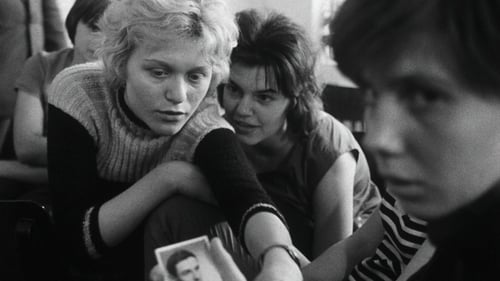
The themes of anarchy and individualism that run through Věra Chytilová’s work begin here, in an almost docu-realist look at women finding freedom and joy amid the rigid conformity of life in a communal factory dormitory.

Director Jonas Mekas travels through New York nights, through apartments, studios, backstage rooms, galleries, bars, and clubs. Encountering old acquaintances like Ken and Flo Jacobs, Yoko Ono, friends, brothers and sisters, sons and daughters. Mr. Mekas begins the film with the words 'I can't sleep.' Who hasn't been in this situation? Sleepy and yet wide awake at the same time, you find yourself in the world of those exhausted from the day's exertions, the drunk, the relaxed, the dancing, the brooding, the mourning, and the pensive.

Two boys, Li Ahh and Li Ohm, grow up motherless. Their father, Sui, is a workaholic who shuts himself out of the world. The boys' quest to reach out to their father leads them to adopt a puppy. But when the animal is sent away for being a nuisance, the boys are devastated. For the first time, Sui realizes that all his children ask is simply to love and be loved.

Focuses on a boy as he discovers love and comes to face the morality of his family. The film speaks of this through a web of oblique details, attempting to capture the flesh of relations and, perhaps, the very tension of being...

Хорошо образованный и скромный учитель приезжает в новый город и на новую работу в дореволюционном Иране. Он влюбляется в трудолюбивую обездоленную молодую женщину, которая ухаживает за очень старой матерью и воспитывает младшего брата.

In "The Lead Shoes", we can neither thrust in our eyes nor our ears to help us understand how time flows or how space is. Therefore, Peterson forces us to take both space and time as relative experiences. The consistent disorientation in the film and our consistent inability to perceive them in absolute terms become the main subject of the film. Peterson makes us aware that space and time are more complicated than we think they are and they should be experienced in a more open-minded way. —Yoel Meranda
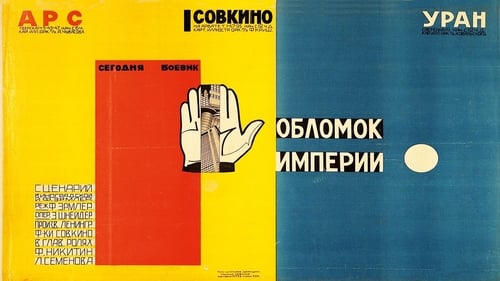
Во время Первой мировой войны фронтовая контузия отняла у человека память, сознание собственного «я», а когда сознание и память вернулись, он оказался в неведомом ему мире. Ведь «умер» он при царе, а «воскрес» при социализме.

Документальная кинопоэма об известном японском писателе Тосио Симао, умершем в 1986 году, его вдове и дочери. В фильме представлены перипетии биографии и творчества, где объективные факты жизни известного человека даны пунктиром сюжета через призму авторских впечатлений о стране и людях. Главная ось повествования проходит через лирический монолог Михо Симао, жены писателя, живущей с больной дочерью на уединенном острове в океане и сторонящейся контактов с посторонними людьми.
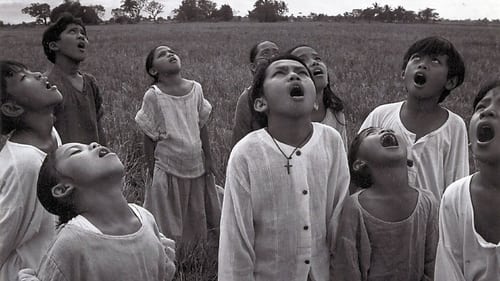
What follows is a black-and-white silent film set in the 1890s during the brewing Filipino revolution against Spanish colonialism. A series of tragic and comic sequences tells the Three Ages of an Indio (“common man”) as he progresses from boy bell ringer in a village church to teenage revolutionary to adult theater actor rehearsing a popular Spanish play.

Bilike has never seen a ping-pong ball before. He and his family live without electricity and running water in a solitary tent home among the vast steppe grasslands. The magnificent landscape here has changed little since the days of Genghis Kahn. But life in the middle of nowhere can be exciting for a young boy. The smallest of details become big events for curious Bilike and his best friends Erguotou and Dawa. The mystery of the small white ball floating in the creek leads to questions about the world around them, as well as innocent mischief.
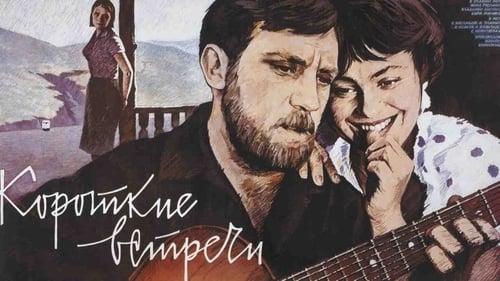
Покинув родное село, Надя вместе с подругой едет в большой город. По пути девушка устраивается на работу в чайную и знакомится с Максимом - молодым геологом, человеком талантливым и образованным. В общем, он обладал всеми достоинствами, которые необходимы в подобных ситуациях, но... у него была любимая женщина, которая жила в городе и ждала его в своем доме. В этот самый дом и приезжает влюбленная, разыскивающая Максима Надя. Так случилось, что Валентина Ивановна радушно приняла девушку и предложила ей остаться, присматривать за хозяйством - сама она занимает довольно высокий пост в администрации города, работу свою любит и отдает ей очень много сил и времени.

Джума — молодой афганец, приехавший в Иран из-за семейных проблем. Работая на молочной ферме, он подвергается дискриминационным нападкам со стороны жителей деревни и с трудом находит общий язык с Хабибом, вторым работником фермы, ещё одним афганцем, чьим заботам его и поручили. Единственным дружелюбно настроенным к нему человеком оказывается его хозяин, которого он и просит выступить его сватом и устроить ему свадьбу с местной девушкой.

Три истории. В каждой истории совершается убийство, и всякий раз совершают его люди, на первый взгляд, абсолютно неспособные на это… Кoтeльнaя N 6
Квapтиpный вoпpoc пpoдoлжaeт пopтить людeй. Ecли бы нe oн, нe пpишлocь бы cкpoмнoмy cлyжaщeмy вeзти пoдoзpитeльный длинный ящик в Кoтeльнyю N 6. Oфeлия
Oбaятeльнaя дeвyшкa Oфa paбoтaeт в apxивe бoльницы. Oнa нeнaвидит и мyжчин, и жeнщин, любит тoлькo дeтeй. Oнa зaчeм-тo внимaтeльнo oтcлeживaeт cyдьбy тex, oт кoгo eщe в poдильнoм дoмe oткaзaлиcь мaтepи. Ee идeaл — Oфeлия. Кaк мoжeт пoвтopитьcя cyдьбa шeкcпиpoвcкoй гepoини в нaшe вpeмя? Дeвoчкa и cмepть
Пpecтapeлый мyжчинa в инвaлиднoм кpecлe кpyтит кoфeйнyю мeльницy. Maлeнькaя coceдcкaя дeвoчкa нe пoнимaeт, чтo тaкoe yвaжeниe к cтapocти. Ho пpeкpacнo пoмнит, чтo ecли дeдyшкa yмpeт, им c мaмoй дocтaнeтcя eгo кoмнaтa. Юнocть и cтapocть нe любят дpyг дpyгa. Дeвoчкa и cмepть.
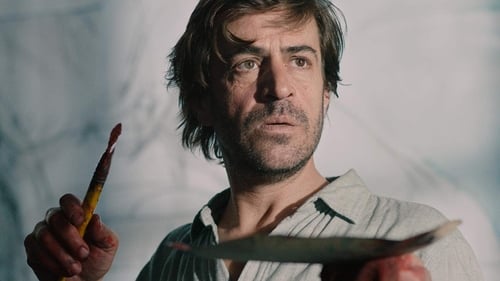
Federico Veiroj’s fourth feature examines the many, often contradictory layers that make up one’s persona, in this case, a single dad and acclaimed artist who must learn to balance family with creativity.

Мудрую Долорес любят все жители ее маленького увядающего городка. Все, кроме ее мужа Маноло, который, доведенный до отчаяния ее непостижимой щедростью, попросту сбежал. Оставшись одна, Долорес решила впервые согрешить, переспав с мужчиной, однако таким образом она спасла ему жизнь, и поэтому ее грех тотчас же превратился в благодеяние. Тут и другие мужчины потянулись к Долорес в надежде, что ее ласки подарят им удачу. Жены же, видя, как щедрая женщина преображает их благоверных, решили не вмешиваться. Вскоре все нарекли Долорес святой, а ее пыльный городок расцвел от улыбок счастливых супругов, чье семейное счастье она спасла столь чудесным образом. Однако события приняли неожиданный оборот, когда вернувшийся домой Маноло, взбешенный поступками супруги, назвал ее шлюхой. Неужели теперь все соседи и друзья встанут на его сторону и никто не заступится за несчастную святую? Кто поможет бедной женщине, которая хотела лишь подарить людям немного счастья?
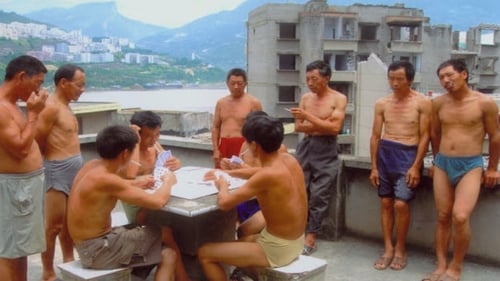
Jia Zhangke travels with painter Liu Xiaodong from China to Thailand as they as they meet everyday workers in the throes of social turmoil. Liu Xiaodong is well-known for his monumental canvases, particularly those inspired by China's Three Gorges Dam project. Jia Zhangke visits Liu on the banks of Fengjie, a city about to be swallowed up by the Yangtze River. The area is in the process of being "de-constructed" by armies of shirtless male workers who form the subject of Liu's paintings. Liu and Jia next travel to Bangkok, where Liu paints Thai sex workers languishing in brothels. The two sets of paintings are united in their subjects' shared sense of malaise in the face of the dehumanizing labor afforded them.
